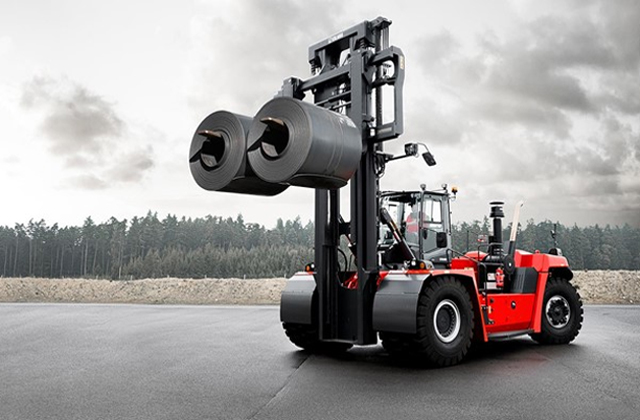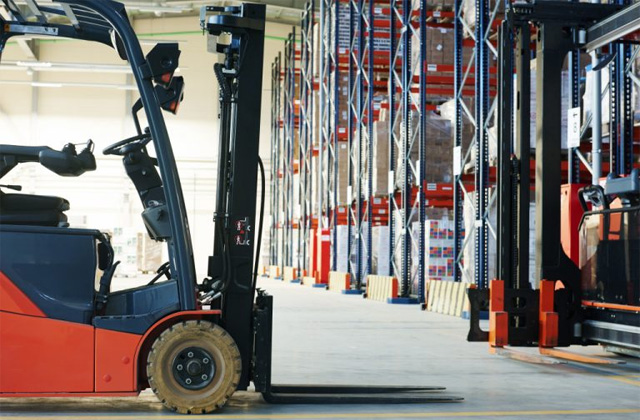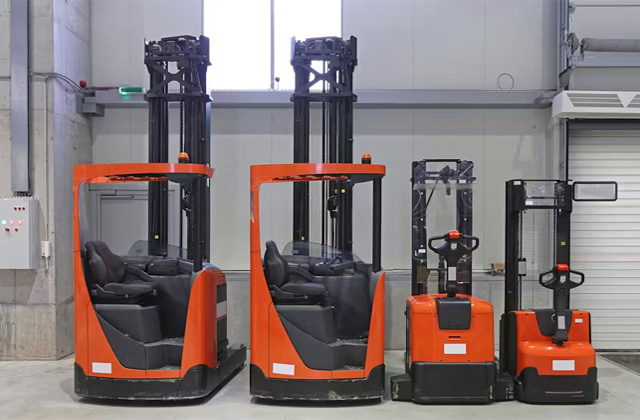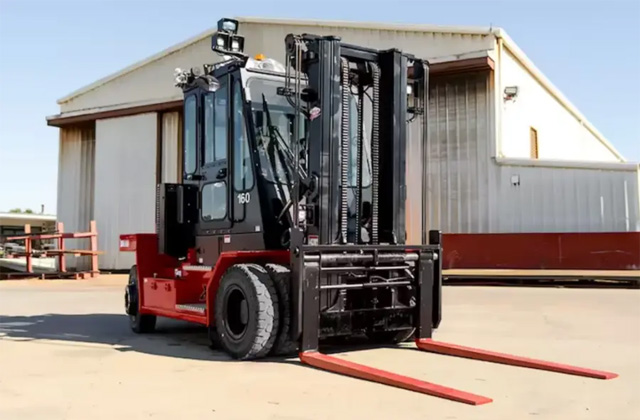Behind every industrial operation and every acceleration in logistics, there's a quiet force underpinning the efficient dance of warehousing and transportation—the forklift. Enabling this force to operate smoothly, precisely, and consistently is not only the equipment itself, but also the "forklift service providers" who stand behind the scenes, providing support and assurance. They are the "mechanical doctors" of the industrial world, the "safety valves" of logistics efficiency, and the "invisible engineers" of corporate trust systems.

1. Forklift Service Providers: An Underestimated Force in the Industrial Chain
When people talk about forklifts, they often think of power and load capacity, "tonnage," "batteries," and "oil pressure." Few realize the fact that even the best forklifts rely on a high-quality service system. Forklift service providers play a crucial role in ensuring high equipment availability, low failure rates, and high safety.
Their responsibility isn't just to "repair" but to "keep production uninterrupted."
From equipment commissioning to periodic maintenance, from parts replacement to system optimization, forklift service providers undertake nearly every critical step in the equipment's lifecycle. 1. The Core Principle of Forklift Services: Balancing Efficiency and Safety
Forklifts are typically high-use equipment, operating for long hours and in complex environments. A single worn component or hydraulic imbalance can bring an entire production line to a standstill. Excellent service providers understand how to strike a balance between "maximum efficiency" and "optimal safety"—ensuring stable equipment operation while controlling maintenance costs and downtime risks.
2. The Multidimensional Roles of Service Providers
Traditionally, forklift service providers are simply an upgraded version of "mechanics." However, in the modern industrial system, they also serve as:
Technical Experts: Mastering a complex range of knowledge in electronic controls, hydraulics, mechanics, and software.
Equipment Managers: Helping companies develop equipment usage plans, maintenance cycles, and scrappage assessments.
Efficiency Consultants: Analyzing operational efficiency and energy consumption through data-driven maintenance and providing optimization recommendations.
Emergency Support: 24/7 on-call to ensure zero interruption to the production line.
A reliable forklift service provider can be considered the "second lifeline" for a company's stable operations. II. The Complete Forklift Service Chain: A Meticulous System from Delivery to Upgrade
1. Early Intervention: Equipment Selection and Application Planning
The value of a forklift service provider often begins in the pre-sales phase.
They will recommend the most suitable model and configuration based on the customer's operating conditions (aisle width, rack height, floor load, humidity, temperature, etc.). For example, a high-bay warehouse with narrow aisles requires a reach truck, while a port or steel plant is more suitable for a large-tonnage internal combustion forklift.
As a leading manufacturer, Shuangchao Machinery adheres to this "technology-forward" philosophy and closely integrates its service system. Its service team not only understands the product but also the site, ensuring precise implementation of selection recommendations from the outset.
2. Delivery and Commissioning: From Equipment to System Integration
Equipment delivery is more than just handing the vehicle to the customer. A truly professional service provider will conduct a multi-level commissioning process, including hydraulic pressure testing, electronic control signal calibration, braking distance testing, and operator comfort assessment. For example, in Shuangchao Machinery's service process, new equipment undergoes three rounds of testing before delivery: factory inspection, post-transport re-inspection, and on-site commissioning. This "multi-node quality control" approach ensures that every forklift is immediately operational and efficient upon arrival at the customer's site.
3. Daily Maintenance: The Core Principle of Preventive Maintenance
Traditional service thinking emphasizes "fixing problems only after they occur." Modern forklift service providers emphasize preventive maintenance (PM) and predictive maintenance (PdM).
Preventive maintenance includes routine maintenance tasks such as regular oil changes, filter changes, and seal changes. Predictive maintenance uses sensor data, usage frequency, and fault models to proactively identify potential anomalies. Examples include battery degradation trends, hydraulic pressure fluctuations, and abnormal braking distances.
Shuangchao Machinery's service team has long been committed to improving this area. They not only provide manual inspections but also explore the use of data acquisition modules to monitor equipment status, making maintenance "intelligent and visual."
4. Fault Response and Rapid Repair
In the forklift industry, a core metric for measuring the quality of service providers is MTTR (mean time to repair response). An excellent service provider must not only provide quality repairs but also speed.
For example, if an electric forklift at a logistics center suddenly shuts down due to an alarm, if the service response takes more than six hours, the entire warehousing chain could experience order delays. The service provider needs to possess comprehensive capabilities to quickly identify the fault, allocate parts, and dispatch technicians.
Shuangchao Machinery implements a "2+1" service organization: responding within two hours and resolving major issues within one day. They also maintain a permanent spare parts storage point to reduce wait times. This "quasi-military" efficiency culture has earned them a high reputation among their customers.
5. Spare Parts Supply and Aftermarket Support
A major pain point in forklift service is the lack of spare parts.
Many repair providers suffer from limited inventory or mismatched brands, leading to long customer waits.
Excellent service providers often develop their own supply chain systems, covering three inventory levels: common parts, consumable parts, and special parts, ensuring that frontline repair personnel can repair on-site.
Shuangchao Machinery has built a relatively complete spare parts system for the aftermarket. Leveraging its manufacturing advantages, its spare parts compatibility and responsiveness surpass those of similar companies.
6. Modification and Upgrade: Advanced Forklift Service Capabilities
When businesses upgrade their operating models, such as from manual to semi-automated, or from warehousing to intelligent logistics, their forklift needs also change. At this time, service providers must go beyond "repair" and offer advanced solutions such as technical modification, module upgrades, and system integration.
Shuangchao Machinery is focusing on this direction. Its engineering team now offers modification services such as control system reconstruction, battery replacement with lithium-ion solutions, and the addition of intelligent safety modules. This means that the lifecycle of a forklift no longer ends with "scrapping," but continues with "re-upgrades."
3. Forklift Service Knowledge System: The "Hidden Knowledge" of the Industry
Forklift maintenance and management may seem simple, but in reality, they involve multidisciplinary and interdisciplinary knowledge.
The following are several core knowledge modules that forklift service providers must master:
1. Hydraulic System Management
The hydraulic system is the "heart" of the forklift. Hydraulic oil quality, temperature, and pressure stability directly impact lifting efficiency. Common problems include excessive oil temperature, abnormal pressure relief, and seal degradation. Service personnel must possess knowledge of fluid dynamics and understand how to improve efficiency through flow valve adjustment and oil line optimization.
2. Electronic Control and Energy Management
With the increasing use of electric forklifts, the electronic control system has become a core maintenance point.
Service providers must be able to read electronic control parameters, analyze current fluctuations, and assess battery health.
Shuangchao Machinery's R&D experience in this area has also empowered its service team's training system. For example, battery module testing, charge and discharge curve analysis, and controller calibration are all incorporated into daily training.
3. Safety System and Training and Education
Forklift accidents account for a significant proportion of industrial safety statistics. Excellent service providers will help clients establish a three-pronged system of "safety training + operating procedures + regular assessments."
This includes:
Operating posture and speed limits;
Tilt angle alarm system;
Daily inspection checklist system;
Safety signs and on-site instructions. 4. Environmental Adaptability and Solutions for Special Working Conditions
Different operating environments place specific demands on forklifts, such as:
Cold storage: Low temperatures significantly impact battery activity and oil viscosity;
Explosion-proof zones: Forklifts must possess intrinsically safe protection;
Ports: Frequent heavy loads and severe salt spray corrosion;
Manufacturing workshops: Precision steering and low-noise operation are essential.
These requirements necessitate service providers to be able to customize these working conditions. Leveraging our manufacturing background, the Shuangchao Machinery team has accumulated extensive experience in non-standard working conditions, enabling us to provide clients with tailored service solutions.
4. Industry Trends: The Transformation from "Repair Services" to "Smart Services"
1. Intelligence and Data-Driven Forklifts are evolving from mechanical equipment to "data terminals."
Future service providers will leverage IoT platforms to implement remote monitoring, fault prediction, energy management, and operational analysis. Data will become the new fuel for maintenance.
Shuangchao Machinery is exploring the use of onboard data modules to upload operating status to the cloud in real time, creating a "health profile" that will enable more scientific and energy-efficient maintenance planning. 2. Full Lifecycle Service
Traditionally, forklift after-sales service stopped at the warranty period.
Nowadays, more service providers are implementing full lifecycle management (LCM), encompassing procurement consultation, delivery, operation, maintenance, upgrades, and recycling.
This means forklift service providers are no longer "short-term suppliers" but "long-term partners" for businesses.
3. Green Energy and Sustainable Services
Electrification and energy conservation are becoming the mainstream.
In addition to maintaining the machinery itself, service providers will also be responsible for optimizing energy consumption and controlling carbon emissions. In the future, "energy consumption management" will be added to the assessment criteria for forklift services.
4. Localization and Response Chain Upgrade
Regional forklift service providers are becoming a new force in the Chinese market.
They are close to customers, offer faster responses, and offer lower costs, fostering a strong trust among small and medium-sized enterprise customers.
Shuangchao Machinery is accelerating this localization trend by building a regional service network.
5. Shuangchao Machinery: A Service-Oriented Approach Underpinned by Manufacturing DNA
Among many forklift brands, Shuangchao Machinery stands out because it is both a manufacturer and a practitioner of service philosophy. It understands that competition in the forklift market takes place not just on the shop floor, but at the customer site.
1. From Manufacturing to Service
Shuangchao Machinery incorporates service into its entire product design process—maintainability, module compatibility, and ease of testing are considered from the R&D stage.
This means its products are inherently "suitable for service," reducing future customer costs.
2. The Professionalism and Warmth of the Service Team
Shuangchao Machinery adheres to the philosophy of "giving technology warmth."
Their engineers not only repair machines but also listen attentively to customer on-site issues. They travel between factories, docks, and warehouses, providing peace of mind with their expertise and ensuring efficiency with meticulous care.
3. Service Innovation: From Tools to Systems
Currently, Shuangchao Machinery is exploring the integration of smart terminals into its forklift service processes, including:
Mobile inspection and recording systems;
Cloud-based maintenance reminders;
Fault prediction algorithms and models.
This transforms forklift maintenance from "reactive repair" to "proactive maintenance."
6. Keep Strength Sustainable, Keep Service Evergreen
Forklifts are a symbol of strength, and forklift service providers are the soul that keeps this strength flowing. They connect equipment and businesses, efficiency and safety, and manufacturing and the future.
In an era where service has become a competitive barrier, truly outstanding forklift service providers are no longer just guardians of tools; they are builders of trust in the industry.
Shuangchao Machinery, with the vision of a manufacturer and the attitude of a service provider, is redefining the "service standard" in the forklift industry—ensuring that every piece of equipment not only moves cargo, but also carries trust and value.



